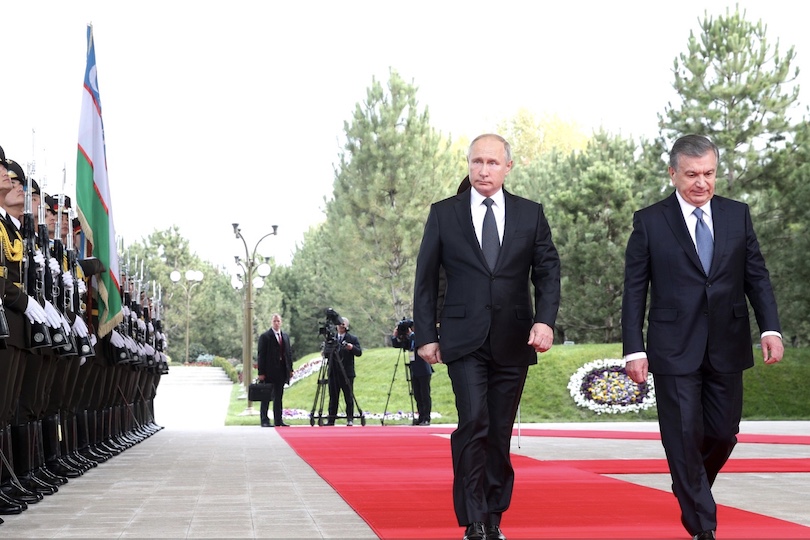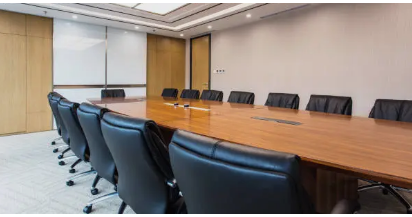As we psephologists are fond of claiming, the October 2021 Uzbekistan votes are in with President Shavkat Mirziyoyev profitable over 80% of the votes. The end result, placing the matter bluntly, is that nothing a lot has modified. The OSCE point to “lack of real electoral competitors on this election. Unbiased opposition events have been excluded from the registration course of opposite to worldwide requirements and OSCE dedication (and) there have been reported circumstances of intimidation”. It’s obvious that the method of democratization in Uzbekistan has far to go if elections intention to attain full legitimacy. There was no real pluralism or significant engagement between candidates or with residents. And, as Reinhold Lopatka noted, there was substantial including to voter lists, poll field stuffing in a number of polling stations and widespread flaws in counting procedures.
“The latest and ongoing reforms are an encouraging signal,” stated Heidi Hautala, Head of the EP delegation. “However the exclusion of opposition events and the shortage of real competitors, in addition to the excessive variety of irregularities we noticed on election day, stay substantial obstacles within the path of the democratization course of”. Daniela De Ridder, Head of the OSCE PA delegation famous “the continuance of unfavourable practices noticed in previous a long time” (OCSE).
As for regime efficiency, preliminary outcomes revealed by the CEC have proven incumbent President Shavkat Mirziyoyev profitable a second time period with a majority 80.1%, though faring the worst efficiency for an incumbent by way of vote share since 1991. As polls closed at 8pm on 24th October 2021 the Uzbekistan Central Election Fee have been capable of report that voter turnout on the nation’s presidential elections had exceeded 80%. Within the early presidential elections in 2016, the voter turnout had been 87.83%. 5 candidates, together with incumbent President Shavkat Mirziyoyev, had vied for the presidential workplace however to all intents it was at all times a one-man race. Mirziyoyev confronted no real opposition and victory will let him prolong his reform marketing campaign and enhance international commerce and funding – whereas nonetheless defending Miziyoye’s centralized energy.
No real opposition events have been registered and whereas there was some leisure on social media, criticism of the President is all however constitutionally forbidden. So, the 4 candidates operating in opposition to Mirziyoyev have been nominated by events which help the president.
Mirziyoyev pledged to chop poverty by fast financial progress and progressively decentralize decisionmaking by devolving energy to district councils. Within the extraordinarily restricted monitoring of public opinion discernible even in city areas, the President was capable of mobilize his occasion devoted, and from such opinion polls as have been carried out he had retained lukewarm help even amongst youthful voters. Press and civic observers actually voiced in favor of state measures in opposition to monetary hardship. This was a slogan the President may simply exploit, nevertheless it now stays to be seen if it may be delivered. Maybe it merely doesn’t matter as Uzbekistan emerges from this election no extra pluralistic than it had entered it.
Worldwide observers will probably be hesitant to see this as a mere “sham election” however as a minimum it’s an election with out real candidacy. It’s, extra precisely, an act of political acclimation orchestrated by president and occasion. It additionally raises questions over Uzbekistan’s so-called new period of ‘openness’ which had been trumpeted in entrance of American and European audiences.
Regrettably, on this election day, as these earlier than it, Uzbekistan stays one of the vital repressive regimes on the earth. This election solutions unequivocally the hopeful narrative of some western observers that perceptibly Uzbekistan may very well be getting extra democratic. The Central Asian nation, notorious for systematic human rights abuses could have rebadged itself “New Uzbekistan – new elections” however there’s barely a shred of proof that something has genuinely modified. Uzbekistan has improved its relations with neighboring states, a few of which have been beforehand thought of “sworn enemies” and its residents may journey, with a visa-free regime serving greater than 50 international locations. Symbolically the outdated safety boss of Karimov’s regime was made redundant and high-profile political releases included Muhammad Bekjan, one of many world’s longest-imprisoned journalists. Additionally it is true {that a} lighter contact has been taken to press freedoms with impartial media, together with the BBC and Voice of America having recent accreditation. Nonetheless, there’s little to help the President’s assertion earlier than the election that no person can put strain on civil society and mass media.
As in 2019, the 2021 race additional demonstrates that the core of the political system in Uzbekistan stays the identical – no oppositional events are allowed to run. All 5 events taking part within the election are loyal to president and regime. The oppositional Erk occasion and its exiled chief Muhammad Solih stay banned in Uzbekistan. One should concede that pre-election media and outcomes protection gave a veneer of stay TV debates, the president and his household remained untouchable.
Prior to those elections the UN Committee in opposition to Torture expressed considerations over continued use of torture by legislation enforcement and jail officers. UN rights knowledgeable Diego Garcia-Sayan concluded following his go to to Uzbekistan that “substantial threats in opposition to judicial independence and the rule of legislation stay”. Human Rights Watch retained it classification of “authoritarian nation” regardless of some tokenistic releasing of political prisoners.
That no real Uzbek grass-root group noticed the voting course of on Sunday exhibits that the federal government remains to be cautious of civil society. On Karimov’s dying Uzbekistan was so repressive it was endangered by protest. Mirziyoyev may solely rescue legitimacy by some restricted change. Even in authoritarian states, presidents require some measure of public approval and help, and the election suggests once more that this pseudo-liberalism might need paid off.
Freedom of speech has actually been on the road in ‘New Uzbekistan’. The tightening of management on new media retailers and bloggers within the quick pre-election interval demonstrates Mirziyoyev’s scant dedication to freedom (RFERL.org) The OSCE interim report famous “an elevated chance to critically report on some social and political points…many longstanding points stay, together with intimidation and harassment of journalists and bloggers, and a restrictive authorized framework for the media”. The Associated Press have been nonetheless extra blunt, “Uzbekistan has by no means held an election that was deemed honest or democratic by Western observers”.
Uzbekistan has fascinated me since my school years after I dreamt of a prepare journey throughout Tashkent, Samarkand, Bukhara, and Khiva. As a global election observer, I’ve now fortunately made these journeys a number of occasions and the nation stays as enchanting as ever. Regrettably, the identical might need to be concluded about its cussed authoritarianism. The modifications steamrollered by by President Shavkat Mirziyoyev might need signaled financial however not political change. Proclaimed in 2017, Mirziyoyev’s Development Strategy for 2017–2021, promised to modernize and liberalize the Uzbek state and society. Based on state propaganda, a brand new Uzbekistan awaits. The truth of the state of affairs is that Mirziyoyev has pushed a improvement however hardly a real human rights agenda.
There may be (nevertheless) additionally a hazard that over-insistence from the west may threaten the progress made to this point in Uzbekistan’s sluggish journey in the direction of democracy. The western agenda with its espousal of judicial reforms, press freedoms, help of sexual minorities and homosexual marriages could show to be an excessive amount of, too quickly except Mirziyoyev can deliver his powerbrokers with him. Uzbekistan at this time appears break up between worldwide aspirations and a conservatism which stays deeply embedded within the Uzbek mentality. Placing it crudely, Uzbekistan’s path for liberalization depends on Mirziyoyev ‘s path whereas the skin mushy energy strategies could have impact solely when the native individuals are nonetheless given sufficient freedom to revamp the nation’s ethical compass.
The street to Uzbek democracy is paved with damaged guarantees. Underneath Mirziyoyev, Uzbekistan’s political system has continued to be tightly managed. Whereas a wide range of events ran within the 2019–20 parliamentary election, all of them have been loyal to the federal government. In Might 2020, the state introduced reforms to ‘liberalize’ its media and electoral legal guidelines. In November 2020, a delegation led by Uzbek Overseas Minister Abdulaziz Kamilov visited the US seeking to strengthen its strategic relationship. The conferences resulted in US$100 million being given to Uzbekistan for financial help, and the US pledging Uzbekistan’s UN Human Rights Council bid. Some reforms had been applied and Parliamentary periods have been extra typically accessible to the general public. Nonetheless, MPs continued to vote unanimously on points just like the appointment of provincial governors, with out makes an attempt at debate or pluralistic decision-making.
Within the atrophied state of Uzbekistan politics, how the long run state handles opposition will probably be famous by observers and by Uzbek civic teams, lots of whom have been accused of performing as Mirziyoyev stooges. In some respects, he has proven himself to be a shrewd manipulator of the political system, extra adroit than any of his cold-war predecessors.







